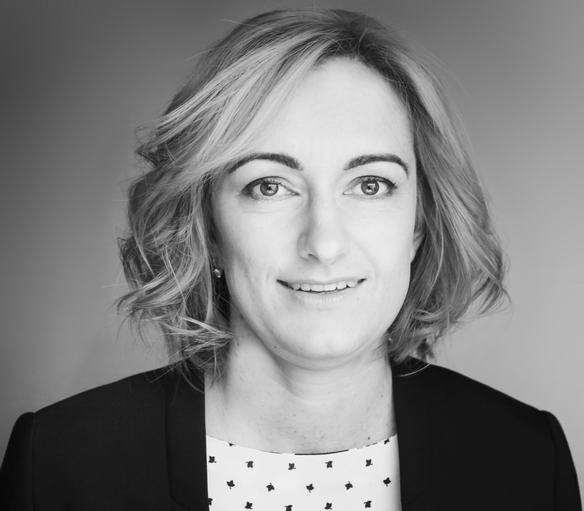Przeszukaj zasoby cashless.pl

We’re talking to Anita Szarek, Chief Financial Officer for global payments at PayU, about the consequences of the EU payment services directive for the Polish market, the history of pay by link transfers and the latest trends in e-commerce.

PayU has a very strong position on the Polish e-commerce payment market, but the competition never sleeps. How will your company defend that position?
We have been building it for 16 years. In that time we managed to win the trust of millions of customers and consumers. It's the foundation of what we do. Many people think that acquisitions and investments are the most important factor in growing a company’s worth. In my opinion it is important, but bilateral cooperation with various partners can be even more significant. In the case of our company, these kinds of partnerships will allow us to defend and even strengthen PayU's market position. Our past experiences show us that this is the most effective thing to do.
What kind of partnerships are you talking about?
For instance introducing pay by link transfers. PayU developed and introduced this service on the Polish market. It was first made available to mBank customers. Pay by links revolutionized online shopping payments in Poland. It is still the most important e-commerce payment method. Such partnerships with banks, fintech companies or online merchants are a sign of PayU's current strength, and will be a sign of its strength in the future.
Related: Polish bank to share statistics regarding Apple Pay payments so far
Right now, for instance, we are working with Kreditech on developing deferred payments. We see the need to introduce an instrument like that because, according to analyses, as much as 42 percent of customers don't finalize their online purchases because they do not have enough money in their accounts at the checkout. Deferred payments would let us meet those customers’ needs while also increasing the average value of a shopping cart, which is very important from the point of view of sellers.
Can you tell me about PayU's cooperation with Zooz?
Working with this Israeli fintech company has allowed us to create a solution we called PayU Hub. It's a technology that enables online stores to introduce easy integration of different payment methods for various local markets. It's a valuable solution for online stores because once they connect to our single platform, they gain access to payment methods from markets all over the world. We’re currently working with individual merchants on their PayU Hub integration. One interesting example of a company from Poland that already uses this solution is Wrocław-based Pixers. It offers personalized interior design products and ships them to over a hundred countries worldwide. Another example from a completely different field - IT services - is Katowice-based Senetic who offer their solutions to clients from different continents, including the Indian market.
How can PayU's business be influenced by the PSD II directive?
This directive will influence not only the business of companies like ours, but the whole banking sector, as well as e-commerce, because it will make it easier for customers to access financial services and will probably allow for the creation of new ones. We have been preparing for it for a long time. By introducing services such as the deferred payments I mentioned or online installment plans we will be able to compete with new companies that might want to find a place for themselves in the new PSD II reality. In that sense we don't view the directive as any kind of risk.
Related: Google Pay to Return to Polish Users’ Smartwatches
Ever since PayU's early days we have prioritized safety and in some sense set out standards in this area. It's important to remember that PSD II also focuses significantly on safety, which means its introduction will not be a big challenge for us.
Are you noticing any significant changes when it comes to payment preferences among customers in Poland? For example, is the percentage of pay by link transfers getting smaller and making way for other solutions, such as card or Blik payments?
We are definitely seeing a growth in the importance of shopping and payments using mobile devices. This means all one click payments are gaining popularity. We are also noticing an increasing share of online card payments and an even faster growth for Blik, which in some stores can boast a similar number of transactions as cards. However, pay by link is still the key product and accounts for a great majority of e-commerce transactions. We are seeing a decline in cash upon delivery payments, although the dynamic here is not where we would like it to be. We have to work on speeding it up.
Thank you.
Anita Szarek
Chief Financial Officer (CFO) for Global Payments at PayU, Memeber of the Managament Board of PayU SA (Naspers Group)
As a Chief Financial Officer for global payments at PayU, Anita is responsible for the company’s present financial condition, reporting financial results, developing finance organizational strategies or providing recommendations to strategically enhance financial performance and business opportunities. Anita is also responsible for corporate business development and strategic projects within EMEA and LATAM.
Before joining the PayU team in August 2016, she has been working at companies such as PricewaterhouseCoopers, Provimi Poland and Cargill. Her most recent experience includes general management, strategic planning and reorganisation, change management and finance management in international environment. She has been developing successful business strategies, delivering radical business turnarounds and also leading high performing teams.
Anita graduated from two INSEAD (The Business School for the World) programs: Leading the effective sales force and M&As and Corporate Strategy. She also holds a MBA from the Warsaw Univeristy of Technology and a Master’s degree in International Economy from the Poznań University of Economics.